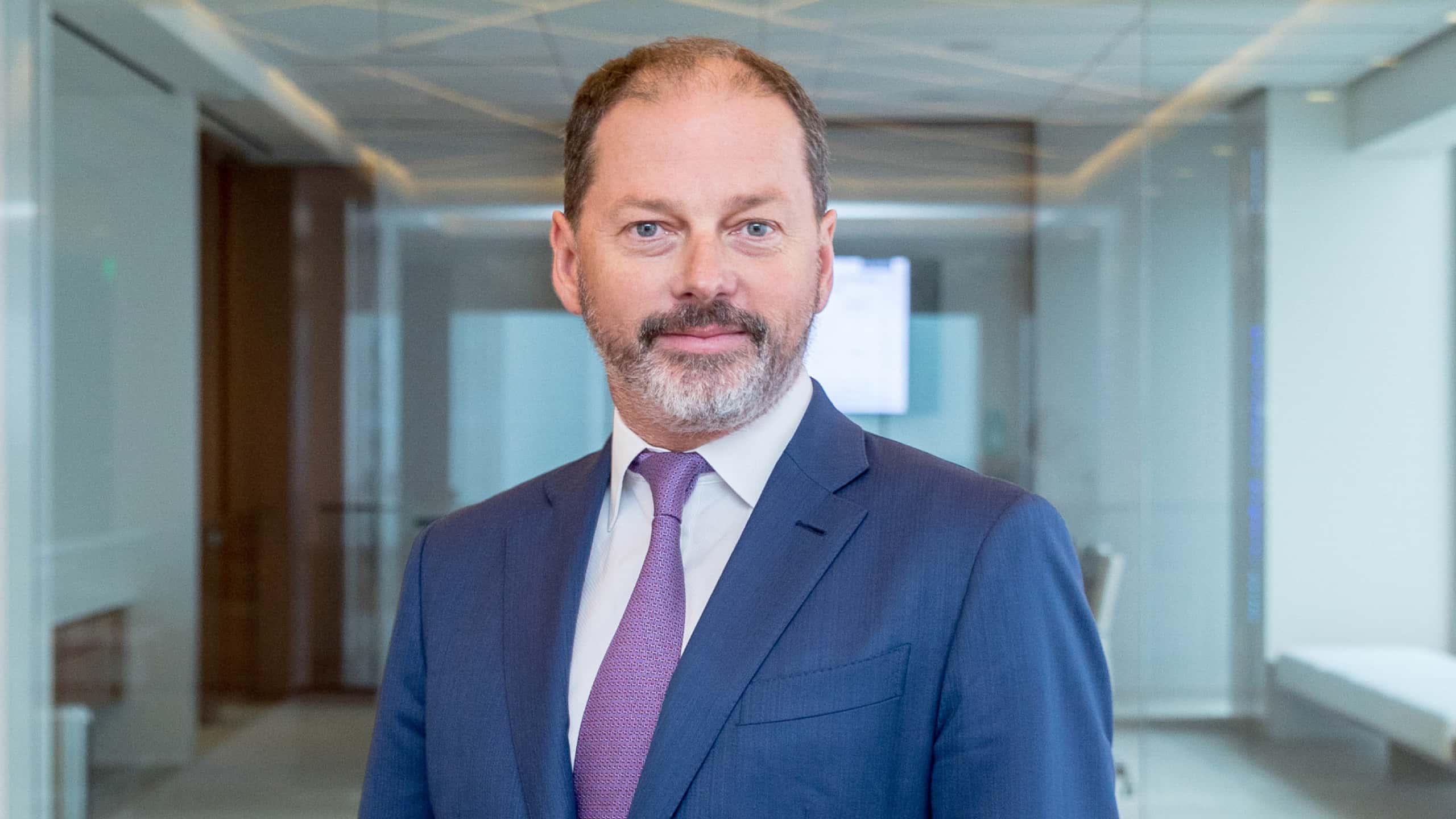Text on screen: David Orazio, Account Manager
Orazio: Hi, and welcome to this month's Trade Floor update. Today I'm joined by portfolio manager, Rob Mead. Rob, thanks for joining us today.
Now, we've had really two big events recently. Firstly, was the release of the Taylor Swift concert tickets and secondly, the RBA’s decision to pause this month. Now, we've been saying pretty consistently for the last 12 months that a cash rate above 4% was going to inflict more pain on Australian households than they've ever experienced. Now that we're beyond that level and the market is pricing in further rate hikes, what's your view on that and are you seeing some cracks starting to appear?
Text on screen: Rob Mead, Head of Australia, Co-head of Asia-Pacific Portfolio Management
Mead: Yes we’re definitely seeing cracks and even since the May retail sales number, the bottom up evidence is suggesting that there's some pain being felt, as you said. We are seeing that really in the last 4 to 6 weeks through some of our bottom up research.
So it's not surprising that the most levered part of our economy is feeling it first. And as we saw the RBA pausing and very clearly indicating that they'll be data dependent, I think it's really timely that with the fixed rate mortgage cliff occurring right now, arguably where we're at now is restrictive enough, and especially because with all these mortgages switching from fixed to floating that transmission mechanism of monetary policy will be much more rapid and households will be feeling it literally almost immediately after a rate move.
So that's very important to calibrate. And finally, I think there's a realisation coming through, whether it be a household or a corporation, that interest rates are going to stay higher for a little longer. And for many out there already, it's feeling like recession.
Orazio: Now, with the economic backdrop that you paint there, what should investors be doing with their portfolio?
Mead: Well, I think the good news is that many investors have already started to take advantage of elevated asset prices and started to de-risk. But I think the job's not yet done. So if we’ve moved from a risky asset to cash or a TD, that's great. But I think there's more to do. It's time to buy bonds.
If you're underweight your strategic allocation to bonds, you should be buying. And remember, TD's are a great part of a portfolio, but they're not the end game. So TD's are illiquid. You've got very long holding periods. You can't change your mind halfway through, otherwise you pay penalties. They don't really diversify.
So if it turns out that this is a more deep recession than even we're forecasting, you don't get any capital gain out of a TD. So you need to really have some defensive assets in the portfolio.
Final thing is, though, looking at other assets that have taken longer to reprice. So when you think about what happens to bond prices when normalisation occurs from central banks, the bonds move first, and that was a 2022 story.
Now we've got very strong protection in the bond market because of the high yields that we're earning every single day. So bonds become much more resilient. The other thing to bear in mind, though, is that as yields go up, every other asset class has to determine what does that mean for them.
And so other assets tend to move more slowly, some even more slowly than others. So what I'd be recommending to investors is have a look at public versus private, have a look at listed versus unlisted, because there are some anomalies there. And then also think through what all that means for some of the borrowers that were fortunate enough to have very long term fixed rate loans, things like the US household, things like investment grade corporations, very well protected from higher interest rates.
And on the flipside of that, we have the bank loan market, we have the highly levered corporate market and we have the Aussie household all being exposed to much higher interest rates in terms of their borrowing costs.
So having a bit of caution around there, really thinking about subordinated tranches of RMBS. They’d be most vulnerable. And even things like highly levered corporations that are closely associated with the property market.
Orazio: Great. Really appreciate your insights today, Rob.
Now, it's clear from today's comments that the monetary policy tightening that we've seen over 2022 and 2023 is starting to affect the real economy. Now, investors should take this opportunity to revisit their portfolio exposures and ensure all of their assets in their portfolio are priced in accordance with this new interest rate reality.
In addition to that, we think it makes prudent sense for investors to have a healthy allocation to core bonds to provide resilient income and downside protection in the face of a slowing economic environment.
Now, as always, if you have any further questions or would like further information on anything that we discussed, please visit our website or reach out to your local PIMCO account manager.

